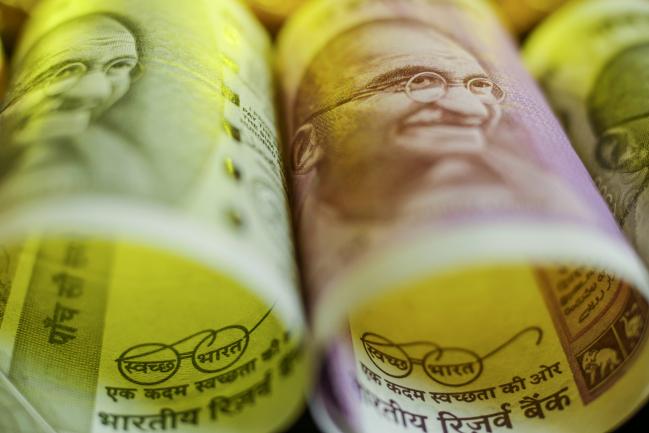(Bloomberg) -- Indian stocks headed for their biggest decline in almost two months and the rupee weakened after geopolitical tensions escalated with Pakistan claiming airspace violation by its neighbor.
The S&P BSE Sensex Index slid as much as 1.4 percent, set for its biggest loss since Jan. 2, after the Pakistan army said India fighter jets violated an agreed border between the two countries. The rupee slid as much as 0.5 percent to 71.3375 per dollar, before paring some losses on suspected central bank intervention, traders said.
“It’s hard to imagine these tensions will subside going into the election period and will remain an ongoing overhang on the rupee,” said Prakash Sakpal, an economist at ING Groep (AS:INGA) NV in Singapore. “The aberration of the rupee from a positive sentiment in broader EM space is certainty the result of heightened border tensions.”
Indian fighter jets destroyed a major terrorist camp in Pakistan, the ANI news agency said, as tensions between the nuclear-armed rivals rose following a terrorist attack in Kashmir this month. Quoting unnamed sources in the the Indian Air Force, the agency said a dozen Mirage 2000 Indian fighter jets dropped 1000 kilogram bombs on terror camps across the Line of Control, the de-facto border between the two countries in disputed Kashmir.
The rupee is already Asia’s worst performing currency this year ahead of general elections due by May where Prime Minister Narendra Modi faces a tough fight from opposition parties. The yield on the most-traded 2028 bonds was steady at 7.59 percent, while spreads on State Bank of India’s 2024 dollar bonds widened seven basis points.
Some analysts said stocks are likely to bounce back from initial declines as the border strike may improve Modi’s election prospects. The benchmark index has pared its earlier plunge to a 0.8 percent drop as of 10:43 a.m. in Mumbai.
“There should only be an initial reaction,” said Chokkalingam G, managing director at Mumbai-based Equinomics Research & Advisory Pvt. “The positive perception to the Modi regime will aid valuations, even as they look expensive.”
READ: Where the Latest India-Pakistan Conflict May Lead: QuickTake
Here are more voices from strategists:
DBS (Radhika Rao, economist)
- Drop in India’s rupee is a “knee-jerk reaction” to the border tensions
- The extent of weakness will depend on the Indian government’s rhetoric; tensions add to worries over the elections that must be held by May
- DBS forecasts USD/INR will rise to 73-74 in the next two quarters due to the election uncertainty and broad dollar strength
Westpac (Frances Cheung, head of Asia macro strategy)
- The rupee has not been moving along with the broad risk sentiment, but instead affected by idiosyncratic factors. Domestic elections and geopolitics could be a weigh in the near term, counteracting the soft oil prices
Mizuho Bank (Vishnu Varathan, head of economics and strategy)
- While increasingly tense relationship with Pakistan may start to drag the rupee, it isn’t an overwhelming factor just yet
- How wider India-Pakistan tensions evolve, specifically with regards to whether Pakistan responds militarily, will determine what a more durable rupee response will look like.
Target (NYSE:TGT) Investing (Sameer Kalra, founder)
- See any downside as opportunity to buy stocks
- Don’t expect hard response from Pakistan. If Pakistan responds to this attack then they are trying to defend camps , which was was India Air force target and when global eyes are watching they wouldn’t do that
- This might also create higher odds of present government continuity which is positive
